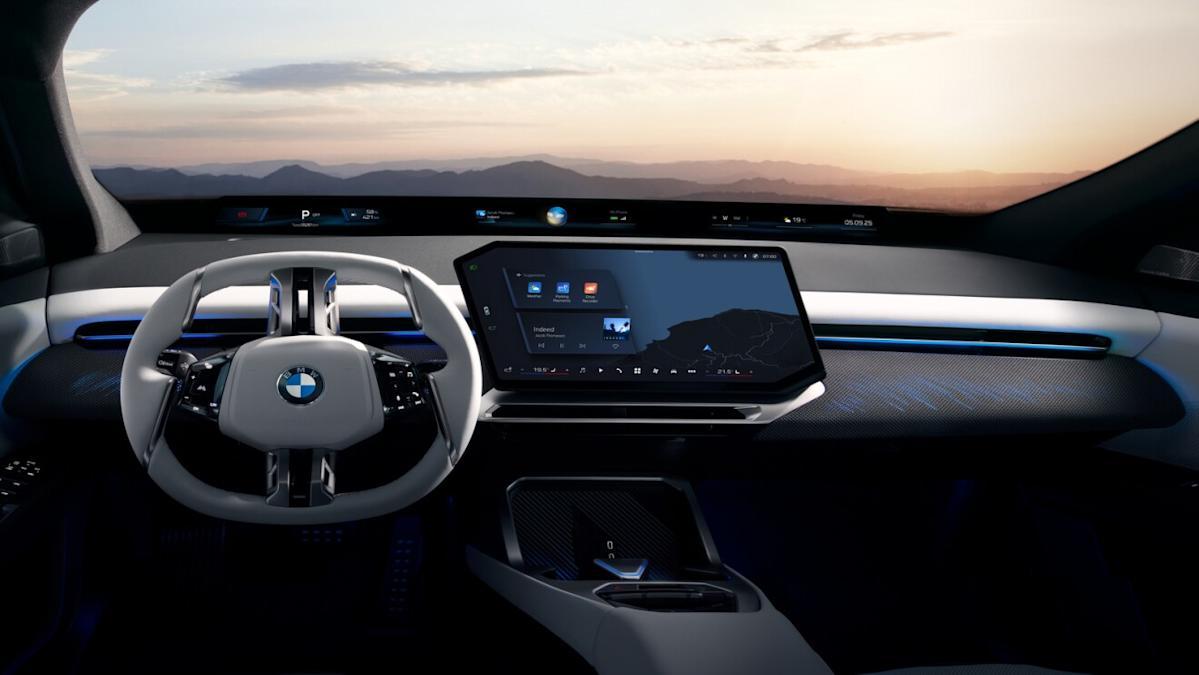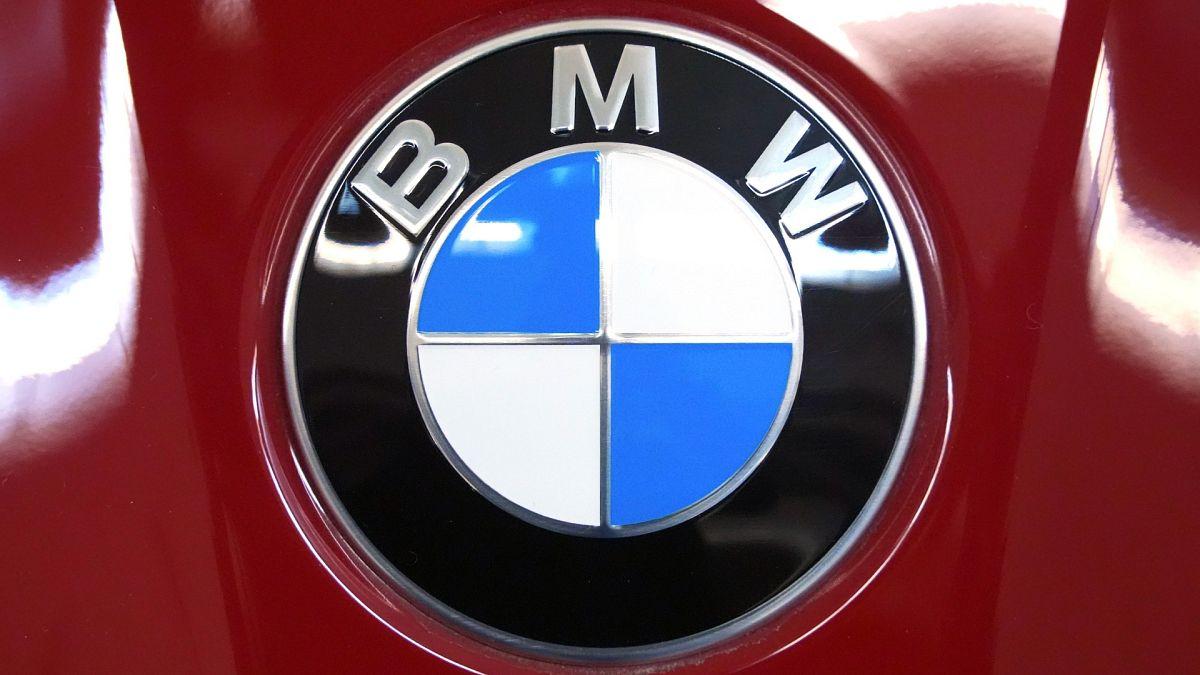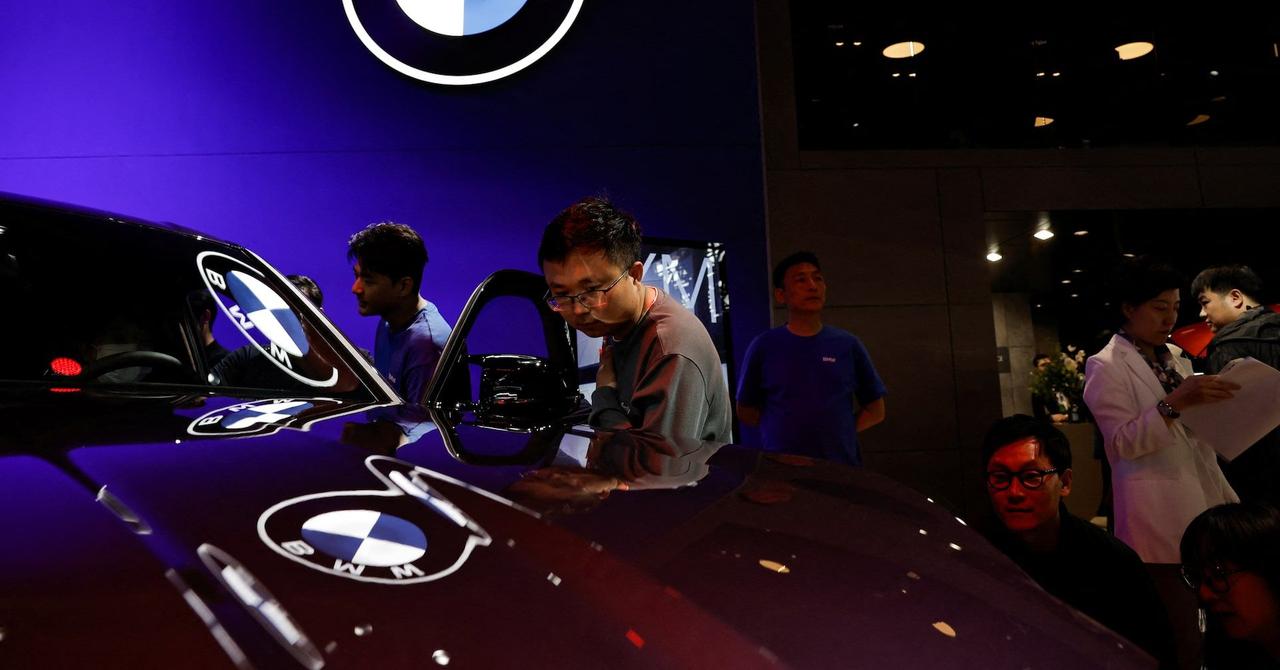BMW Becomes First Automaker to Integrate Amazon's Alexa+ AI Assistant in Vehicles
4 Sources
4 Sources
[1]
Alexa+ is coming to BMW vehicles
It continues a long-standing partnership between the two companies. Amazon is gradually rolling out its next-generation Alexa assistant within its own product ecosystem, but the latest recipient of is BMW. Amazon has the latest version of Alexa Custom Assistant, the platform that allows companies (including BMW) to build their own AI assistants that leverage Alexa tech, which will be powered by Alexa+ going forward. With Alexa+ architecture working under the hood, drivers will benefit from a more natural, conversational style of in-vehicle interactions, while making use of the assistant's more comprehensive agentic capabilities and ability to deal with more complex instructions than it could previously. Alexa+ can access more than 70 large language models (LLM), and Amazon has promised that any conversation you've had with one of its home devices can be continued in the car. BMW was already Alexa Custom Assistant as the foundation of its in-vehicle voice assistant tech, which it calls the BMW Intelligent Personal Assistant (IPA), and it'll be the first car manufacturer to get access to Alexa+. At CES 2024, the two companies also a new feature that effectively allows Alexa to absorb the driver's manual so it can answer any question about your car in real-time. BMW has gone all in on Amazon's ecosystem, with its connected features also powered by the Amazon Web Services (AWS) cloud platform. The new Alexa Custom Assistant will come to select BMW models soon, but we don't currently have any specifics as to the exact date or which vehicles will get it.
[2]
BMW brings Alexa+ onboard and your car just got a personality update
Smarter navigation, better chat, fewer arguments with your partner. What's happened? BMW and Amazon have announced a major upgrade to BMW's built-in voice assistant system, integrating Alexa+, Amazon's next-generation AI assistant built on Alexa Custom Assistant. According to Amazon, the new system will deliver more natural conversations, better context awareness, and personalised responses inside BMW vehicles. BMW becomes the first automaker to adopt Alexa+ in vehicles, combining Amazon's large-language model architecture with BMW's driving context. The new system moves beyond fixed voice commands toward "true conversational experience," allowing drivers to speak more naturally and expect richer interactions. Integration will appear in select upcoming BMW models, though exact availability dates and model lists are yet to be revealed. The joint announcement emphasises that BMW will maintain its brand feel and user experience while leveraging Amazon's AI tech stack (including AWS and Bedrock). Why this is important: This move marks a big step in how voice assistants operate inside cars. Now, it's no longer just about controlling climate or music, but becoming more like a conversational co-pilot. That matters because drivers increasingly expect more natural voice interactions while keeping their hands on the wheel and eyes on the road. By merging Alexa+ with BMW's systems, both companies are betting that richer context-aware voice services will set the tone for next-gen in-car experiences. Furthermore, BMW has the opportunity to differentiate its infotainment by offering "smarter" responsiveness than generic voice assistants in other vehicles. Recommended Videos From a business viewpoint, it signals the growing importance of AI and voice services in vehicles, not just hardware and drives. As automakers push toward software-defined vehicles, in-car assistants become more central, with things like handling navigation, vehicle controls, media, and even smarter suggestions based on driving context. BMW and Amazon's partnership shows how the auto and tech industries are converging around these services. Why should I care? If you're in the market for a BMW (or already own one), this means your car's voice interface may get a meaningful upgrade soon -- one that feels more natural and less rigid than typical in-car assistants. You'll likely be able to ask more complex queries like "Play my road-trip playlist, tell me the nearest EV charger, and ping my home to turn on the lights," all without figuring out command keywords. It also means that your vehicle can begin to act more like part of your personal ecosystem: Alexa's smart-home reach (once brought into the car) could let you control not just the vehicle but your home while on the road. For drivers who value convenience, reduced distractions, and more seamless integration with smart devices, this update could raise the in-car tech game. Still, it's worth keeping expectations realistic: you'll need a compatible BMW model and possibly additional subscriptions, and full rollout details remain to come. Okay, so what's next? BMW and Amazon haven't published a full rollout schedule yet, but the companies say the Alexa+ upgrade will appear in select BMW models "soon". Keep an eye on BMW's official communications or dealer announcements for exact model years. In the meantime, you can prepare by making sure your BMW (if eligible) has the latest software updates and staying tuned for when this next-gen voice capability becomes available. As voice assistants evolve, expect future updates to add features like more local offline processing (important when you're in low-connectivity areas), deeper integration with vehicle systems, and personalised driving experiences that learn from your habits.
[3]
BMW Brings Alexa+ to Its Infotainment System-Here's What It Means
By using the new generative AI platform, BMW drivers will be able to have more natural in-car conversations with the infotainment system. BMW cars will be the first to integrate Amazon's next-generation voice assistant technology. The German automaker's infotainment systems have long been using Alexa Custom Assistant, the platform that allows companies to build their own artificial intelligence assistants based on Alexa tech. Moving forward, however, the voice that responds to the driver's commands in BMWs will leverage the Alexa+ architecture, which is based on generative AI. For owners, it means that in-car conversations and commands should sound more natural, with Alexa+ no longer being constrained by a set number of keywords. Amazon said Alexa+ can access over 70 large language models (LLMs), and that conversations that were started with other Alexa+ devices can be continued in the car. In practice, drivers will be able to say things like "find a DC fast charger nearby that has a well-rated restaurant, and then play my road trip playlist." According to Amazon, integrating Alexa+ in vehicles "represents a significant leap forward for in-vehicle conversational AI, moving beyond simple structured voice commands to deliver truly natural conversations and intelligent capabilities." BMW's Alexa+ integration should be similar to Volvo's integration of Google Gemini, another AI-based personal assistant. The difference, however, is that Volvo uses Google Maps as its go-to navigation system, and it's theoretically easier to integrate Google's voice assistant. Volvo's entire infotainment system is also based on Google's Android Automotive OS. Meanwhile, the latest generation of BMW's iDrive infotainment system is based on the Android Open Source Project (AOSP) and uses a custom-built navigation system. BMW hasn't revealed which models will be the first to get the new generative AI-based voice assistant, and Amazon said that the rollout will happen "soon."
[4]
BMW integrates Alexa+ for true in-car conversations
Future BMW drivers will be able to issue multi-step, natural requests like "find a charger and play my playlist." BMW and Amazon announced the integration of Alexa+, Amazon's next-generation AI, into BMW's in-car voice assistant, offering natural, context-aware conversations for drivers. BMW becomes the first automaker to adopt Alexa+ in vehicles. This system combines Amazon's large-language model architecture with BMW's driving context. It replaces fixed voice commands with a "true conversational experience," enhancing driver interaction. The integration will feature in select upcoming BMW models; specific availability dates and model lists remain undisclosed. Both companies emphasize BMW will retain its brand identity and user experience while leveraging Amazon's AI tech stack, including AWS and Bedrock. This development signifies an evolution in in-car voice assistants, moving beyond basic controls to function as a conversational co-pilot. Drivers increasingly expect natural voice interactions to maintain focus on the road. The merger of Alexa+ with BMW's systems aims for richer, context-aware voice services, potentially establishing a standard for future in-car experiences. BMW aims to differentiate its infotainment through enhanced responsiveness compared to generic voice assistants. From a business perspective, this partnership highlights the increasing importance of AI and voice services in vehicles, alongside traditional hardware. As automakers advance toward software-defined vehicles, in-car assistants like Alexa+ become central to managing navigation, various vehicle controls, media, and offering contextual suggestions. The collaboration between BMW and Amazon exemplifies the convergence of the automotive and technology industries within these service areas. For current or prospective BMW owners, this means a potential upgrade to the vehicle's voice interface. Users may issue complex queries such as, "Play my road-trip playlist, tell me the nearest EV charger, and ping my home to turn on the lights," without requiring specific command keywords. This integration could also extend Alexa's smart-home capabilities to the vehicle, allowing control of home devices from the car. While offering convenience, reduced distractions, and seamless smart device integration, a compatible BMW model and potential subscriptions are required, with full rollout details pending. BMW and Amazon have not released a comprehensive rollout schedule. They state the Alexa+ upgrade will appear in select BMW models "soon." BMW customers should monitor official communications or dealer announcements for exact model years and software updates to prepare for this next-gen voice capability. Future updates to voice assistants are expected to include features like more local offline processing, deeper vehicle system integration, and personalized driving experiences based on user habits.
Share
Share
Copy Link
BMW partners with Amazon to integrate Alexa+, the next-generation AI assistant, into its in-vehicle voice systems. The upgrade promises more natural conversations and advanced capabilities for drivers, marking a significant step in automotive AI integration.
BMW Partners with Amazon for Next-Generation In-Car AI
BMW has announced a groundbreaking partnership with Amazon to integrate Alexa+, the tech giant's next-generation AI assistant, into its vehicle infotainment systems. This collaboration makes BMW the first automaker to adopt Alexa+ technology in vehicles, marking a significant evolution in automotive voice assistant capabilities
1
.
Source: Engadget
The integration builds upon BMW's existing relationship with Amazon, as the German automaker has been using Alexa Custom Assistant as the foundation for its BMW Intelligent Personal Assistant (IPA) for several years. The upgrade to Alexa+ represents a major technological leap, moving beyond traditional structured voice commands to enable truly natural conversational interactions
2
.Enhanced Conversational Capabilities
The new Alexa+ architecture brings substantial improvements to in-car voice interactions. Unlike previous systems that required specific keywords and rigid command structures, Alexa+ enables drivers to communicate with their vehicles using natural language. The system can access more than 70 large language models (LLMs), providing comprehensive agentic capabilities and the ability to handle complex, multi-step instructions
1
.
Source: InsideEVs
Drivers will be able to issue sophisticated requests such as "find a DC fast charger nearby that has a well-rated restaurant, and then play my road trip playlist" or "Play my road-trip playlist, tell me the nearest EV charger, and ping my home to turn on the lights" without needing to break these into separate commands
3
4
.Seamless Ecosystem Integration
One of the most compelling features of the new system is its ability to maintain conversation continuity across devices. Amazon has promised that conversations started with Alexa devices at home can be continued seamlessly in the car, creating a unified experience across the user's entire smart ecosystem
1
.This integration extends BMW's commitment to Amazon's broader technology stack, with the automaker's connected features already powered by Amazon Web Services (AWS) cloud platform. The partnership also leverages Amazon's Bedrock AI service, ensuring BMW maintains its brand identity while benefiting from cutting-edge AI capabilities
2
.Related Stories
Industry Implications and Future Outlook
The BMW-Amazon collaboration represents a significant shift in the automotive industry's approach to in-car technology. As vehicles become increasingly software-defined, voice assistants are evolving from simple control interfaces to sophisticated conversational co-pilots that can understand context and provide intelligent suggestions based on driving situations
4
.This development positions BMW competitively against other automakers exploring similar AI integrations, such as Volvo's implementation of Google Gemini. However, BMW's approach differs significantly, as it uses a custom-built navigation system based on the Android Open Source Project (AOSP) rather than relying entirely on third-party platforms
3
.Rollout Timeline and Availability
While both companies have confirmed that the Alexa+ integration will arrive "soon" in select BMW models, specific details regarding exact dates, model years, and which vehicles will receive the upgrade remain undisclosed. BMW customers are advised to monitor official communications and dealer announcements for availability information
2
4
.The partnership also demonstrated additional capabilities at CES 2024, including a feature that allows Alexa to absorb and understand vehicle owner's manuals, enabling real-time answers to car-specific questions
1
.References
Summarized by
Navi
[1]
[2]
[4]
Related Stories
BMW and Alibaba Join Forces to Develop AI-Powered In-Car Technology for Chinese Market
26 Mar 2025•Technology

BMW Unveils Revolutionary Panoramic iDrive System with AI Integration for Future Vehicles
08 Jan 2025•Technology

BMW to Integrate DeepSeek AI in New Vehicles for Chinese Market
23 Apr 2025•Technology

Recent Highlights
1
Google Gemini 3.1 Pro doubles reasoning score, beats rivals in key AI benchmarks
Technology

2
ByteDance's Seedance 2.0 AI video generator triggers copyright infringement battle with Hollywood
Policy and Regulation

3
ChatGPT cracks decades-old gluon amplitude puzzle, marking AI's first major theoretical physics win
Science and Research





